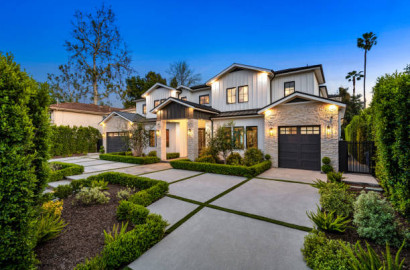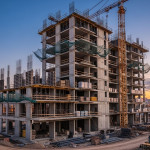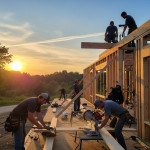
Navigating the Nigerian housing market can be complex, especially when it comes to securing financing for a home. With various mortgage options available, it’s essential to understand the differences between them to make informed decisions that align with your financial goals. In this blog post, we are going to explore different types of mortgages in Nigeria, their features, benefits, and considerations to keep in mind.
In Nigeria, the dream of homeownership often requires significant financial planning and support. Mortgages have become a popular means of financing property purchases, allowing individuals to pay for their homes over an extended period. However, not all mortgages are created equal. Understanding the various types can help you choose the right option for your needs, whether you're a first-time homebuyer or looking to invest in real estate.
Common Types of Mortgages in Nigeria
1. Fixed-Rate Mortgages
Definition: A fixed-rate mortgage is a loan with a consistent interest rate throughout the loan term. This means your monthly payments will remain stable, making it easier to budget.
Advantages:
- Predictability: Borrowers benefit from fixed payments, which makes financial planning straightforward.
- Long-Term Stability: Fixed rates protect borrowers from fluctuations in the market interest rates.
Drawbacks:
- Higher Initial Rates: Fixed-rate mortgages often come with higher interest rates compared to variable options.
- Less Flexibility: If the market rates decrease, borrowers miss out on refinancing benefits without additional costs.
Ideal For: Homebuyers who prefer stability and plan to stay in their homes for the long term.
2. Variable-Rate Mortgages (Adjustable-Rate Mortgages)

Definition: Variable-rate mortgages have interest rates that fluctuate based on market conditions. The initial rate may be lower, but it can increase or decrease at specified intervals.
Advantages:
- Lower Initial Payments: The starting interest rate is often lower than that of fixed-rate mortgages, leading to reduced initial monthly payments.
- Potential Savings: If interest rates remain low, borrowers can benefit from lower payments over time.
Drawbacks:
- Payment Uncertainty: Payments can increase significantly after the initial fixed period, creating budgeting challenges.
- Market Dependency: Borrowers face the risk of rising interest rates, which can lead to higher costs.
Ideal For: Buyers who expect to move or refinance within a few years or those who anticipate stable or declining interest rates.
3. FHA Loans
Definition: The Federal Housing Authority (FHA) offers loans aimed at low to moderate-income borrowers who may have lower credit scores. While not as prevalent in Nigeria as in other countries, similar programs exist.
Advantages:
- Lower Down Payments: FHA loans often require a smaller down payment, making them accessible for first-time buyers.
- Flexible Credit Requirements: These loans cater to individuals with less-than-perfect credit.
Drawbacks:
- Mortgage Insurance: Borrowers typically need to pay for mortgage insurance, which can increase monthly costs.
- Loan Limits: FHA loans have maximum amounts that can be borrowed, which may limit purchasing power.
Ideal For: First-time homebuyers and individuals with limited savings or lower credit scores.
4. Commercial Mortgages

Definition: Commercial mortgages are loans specifically designed for purchasing commercial properties, such as office buildings, retail spaces, or industrial sites.
Advantages:
- Higher Loan Amounts: Commercial mortgages often allow for larger loan amounts compared to residential mortgages.
- Investment Potential: These loans can help finance properties that generate rental income.
Drawbacks:
- Complex Application Process: The approval process for commercial mortgages can be more complicated and stringent than for residential loans.
- Higher Interest Rates: Interest rates for commercial mortgages can be higher due to increased risk for lenders.
Ideal For: Investors looking to purchase commercial real estate for business purposes or rental income.
5. Home Equity Loans and Lines of Credit
Definition: Home equity loans allow homeowners to borrow against the equity they have built in their property. A line of credit offers flexible access to funds up to a certain limit.
Advantages:
- Access to Funds: Home equity loans provide a significant sum for major expenses, such as renovations or education.
- Lower Interest Rates: Interest rates may be lower than unsecured loans since the property secures the loan.
Drawbacks:
- Risk of Foreclosure: Borrowers risk losing their homes if they fail to repay the loan.
- Fees and Closing Costs: Home equity loans may involve additional fees, which can increase the overall cost.
Ideal For: Homeowners looking to finance large expenses or consolidate debt using the equity in their homes.
6. Construction Mortgages

Definition: Construction mortgages are short-term loans used to finance the building of a new home. They typically convert to a permanent mortgage once construction is complete.
Advantages:
- Funds for Construction: Borrowers can access funds as needed throughout the building process.
- Interest-Only Payments: Many construction loans allow for interest-only payments during the construction period, reducing initial costs.
Drawbacks:
- Higher Interest Rates: Construction loans often come with higher interest rates than traditional mortgages.
- Complex Approval Process: Lenders require detailed plans and budgets, making the application process more involved.
Ideal For: Individuals looking to build their dream home from the ground up.
Conclusion
Understanding the different types of mortgages available in Nigeria is crucial for any prospective homebuyer or investor. Each mortgage type comes with its unique features, advantages, and considerations, allowing you to find the option that best suits your financial situation and long-term goals. Whether you opt for a fixed-rate mortgage for stability, a variable-rate mortgage for lower initial payments, or a specialized loan for construction or commercial purposes, being well-informed will empower you to make sound financial decisions. Take the time to assess your options, consult with mortgage professionals, and choose a mortgage that aligns with your needs for a successful journey toward homeownership.
Related posts:
It usually starts as a simple question, the kind people ask casually but think about deeply. Do you buy a car to make life easier now, or land to secure something bigger for the future? Both feel important. Both cost...
At some point in the home-buying journey, almost everyone faces the same quiet dilemma. Do you choose the order and structure of an estate, or the freedom and independence of a standalone house On the surface, the decision looks simple....


 Land or Car: Which One Should You Buy First?
Land or Car: Which One Should You Buy First?
 Living In An Estate vs Standalone Houses: Which One Is Actually Better?
Living In An Estate vs Standalone Houses: Which One Is Actually Better?
 Why Many People Start Building and Never Finish
Why Many People Start Building and Never Finish
 Should You Buy a Home or Build One? A Complete Guide to Making the Right Decision
Should You Buy a Home or Build One? A Complete Guide to Making the Right Decision
 The Best Places to Live in Lagos
The Best Places to Live in Lagos